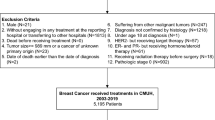Abstract
This is the first study to investigate the relationships among fibroblast growth factor receptor 4 (FGFR4) genetic polymorphisms, development of uterine cervical cancer, clinicopathological variables, and patient prognosis in Taiwanese women. Real-time polymerase chain reaction and genotyping were used to detect the genotype frequencies of 4 FGFR4 single-nucleotide polymorphisms (SNPs), rs351855 (C/T, Gly388Arg), rs2011077 (G/A), rs7708357 (G/A), and rs1966265 (Ile10Val), in 138 patients with invasive cancer, 89 with precancerous lesions of uterine cervix, and 335 normal controls. The results showed that there is no significant difference in the frequencies of FGFR4 SNPs rs351855, rs2011077, rs7708357, and 1966265 between women with cervical invasive cancer and normal controls even after controlling for age. However, significant differences existed in the distributions of the FGFR4 genetic polymorphism rs2011077, when mutant homozygotes (AA) were compared using other genotypes (GG/GA) as a reference, as well as rs1966265, when mutant homozygotes (AA) were compared using GG/GA as a reference, between women with cervical precancerous lesions and normal women even after controlling for age. In multivariate analysis, lymph node metastasis was associated with cancer recurrence, and lymph node metastasis and FGFR4 rs351855 were associated with patient survival. In conclusion, our study demonstrated that FGFR4 rs2011077 and rs1966265 are associated with the progression of cervical normal tissues to precancerous lesions in Taiwanese women. Moreover, rs351855 (Gly388Arg) is the only FGFR4 genetic polymorphism that is associated with patient survival.
Similar content being viewed by others
References
Gospodarowicz D, Rudland P, Lindstrom J, Benirschke K. Fibro-blast growth factor: its localization, purification, mode of action, and physiological significance. Adv Metab Disord. 1975;8: 301–335.
Goetz R, Mohammadi M. Exploring mechanisms of FGF signalling through the lens of structural biology. Nat Rev Mol Cell Biol. 2013;14(3):166–180.
Muller AK, Meyer M, Werner S. The roles of receptor tyrosine kinases and their ligands in the wound repair process. Semin Cell Dev Biol. 2012;23(9):963–970.
Itoh N, Ornitz DM. Evolution of the Fgf and Fgfr gene families. Trends Genet. 2004;20(11):563–569.
Johnson DE, Williams LT. Structural and functional diversity in the FGF receptor multigene family. Adv Cancer Res. 1993;60: 1–41.
Trueb B. Biology of FGFRL1, the fifth fibroblast growth factor receptor. Cell Mol Life Sci. 2011;68(6):951–964.
Tiong KH, Tan BS, Choo HL, et al. Fibroblast growth factor receptor 4 (FGFR4) and fibroblast growth factor 19 (FGF19) autocrine enhance breast cancer cells survival. Oncotarget. 2016;7(36):57633–57650.
Choi CH, Chung JY, Kim JH, Kim BG, Hewitt SM. Expression of fibroblast growth factor receptor family members is associated with prognosis in early stage cervical cancer patients. J Transl Med. 2016;14(1):124.
Jiang Y, Sun S, Wei W, et al. Association of FGFR3 and FGFR4 gene polymorphisms with breast cancer in Chinese women of Heilongjiang province. Oncotarget. 2015;6(32):34023–34029.
Koole K, van Kempen PM, van Bockel LW, et al. FGFR4 is a potential predictive biomarker in oral and oropharyngeal squa-mous cell carcinoma. Pathobiology. 2015;82(6):280–289.
Rezvani M, Wilde J, Vitt P, et al. Association of a FGFR-4 gene polymorphism with bronchopulmonary dysplasia and neonatal respiratory distress. Dis Markers. 2013;35(6):633–640.
Ma Z, Tsuchiya N, Yuasa T, et al. Polymorphisms of fibroblast growth factor receptor 4 have association with the development of prostate cancer and benign prostatic hyperplasia and the progression of prostate cancer in a Japanese population. Int J Cancer. 2008;123(11):2574–2579.
Xu W, Li Y, Wang X, et al. FGFR4 transmembrane domain polymorphism and cancer risk: a meta-analysis including 8555 subjects. Eur J Cancer. 2010;46(18):3332–3338.
Sheu MJ, Hsieh MJ, Chiang WL, et al. Fibroblast growth factor receptor 4 polymorphism is associated with liver cirrhosis in hepatocarcinoma. PLoS One. 2015;10(4):e0122961.
Wu HH, Liu YF, Yang SF, et al. Association of single-nucleotide polymorphisms of high-mobility group box 1 with susceptibility and clinicopathological characteristics of uterine cervical neopla-sia in Taiwanese women [Published online October 4, 2016]. Tumour Biol. 2016;37(12):15813–15823.
Lin YS, Liu YF, Chou YE, et al. Correlation of chitinase 3-like 1 single nucleotide polymorphisms and haplotypes with uterine cervical cancer in Taiwanese women. PLoS One. 2014;9(9): e104038.
Wu HH, Lee TH, Tee YT, et al. Relationships of single nucleotide polymorphisms of monocyte chemoattractant protein 1 and che-mokine receptor 2 with susceptibility and clinicopathologic characteristics of neoplasia of uterine cervix in Taiwan women. Reprod Sci. 2013;20(10):1175–1183.
FitzGerald LM, Karlins E, Karyadi DM, et al. Association of FGFR4 genetic polymorphisms with prostate cancer risk and prognosis. Prostate Cancer Prostatic Dis. 2009;12(2):192–197.
Agarwal D, Pineda S, Michailidou K, et al; kConFab Investigators; Australian Ovarian Cancer Study Group. FGF receptor genes and breast cancer susceptibility: results from the Breast Cancer Association Consortium. Br J Cancer. 2014;110(4):1088–1100.
Hsu CG, Lin LY, Ko JL, et al. High expression of human non-metastatic clone 23 type 1 in cancer of uterine cervix and its association with poor cell differentiation and worse overall survival. J Surg Oncol. 2008;98(6):448–456.
Wang J, Yu W, Cai Y, Ren C, Ittmann MM. Altered fibroblast growth factor receptor 4 stability promotes prostate cancer progression. Neoplasia. 2008;10(8):847–856.
Sugiyama N, Varjosalo M, Meller P, et al. Fibroblast growth factor receptor 4 regulates tumor invasion by coupling fibroblast growth factor signaling to extracellular matrix degradation. Cancer Res. 2010;70(20):7851–7861.
Stadler CR, Knyazev P, Bange J, Ullrich A. FGFR4 GLY388 isotype suppresses motility of MDA-MB-231 breast cancer cells by EDG-2 gene repression. Cell Signal. 2006;18(6):783–794.
Shim HJ, Shin MH, Kim HN, et al. The prognostic significance of FGFR4 Gly388 polymorphism in esophageal squamous cell carcinoma after concurrent chemoradiotherapy. Cancer Res Treat. 2016;48(1):71–79.
Shifman S, Bronstein M, Sternfeld M, et al. A highly significant association between a COMT haplotype and schizophrenia. Am J Hum Genet. 2002;71(6):1296–1302.
Author information
Authors and Affiliations
Corresponding author
Rights and permissions
About this article
Cite this article
Chen, TH., Yang, SF., Liu, YF. et al. Association of Fibroblast Growth Factor Receptor 4 Genetic Polymorphisms With the Development of Uterine Cervical Cancer and Patient Prognosis. Reprod. Sci. 25, 86–93 (2018). https://doi.org/10.1177/1933719117702250
Published:
Issue Date:
DOI: https://doi.org/10.1177/1933719117702250




